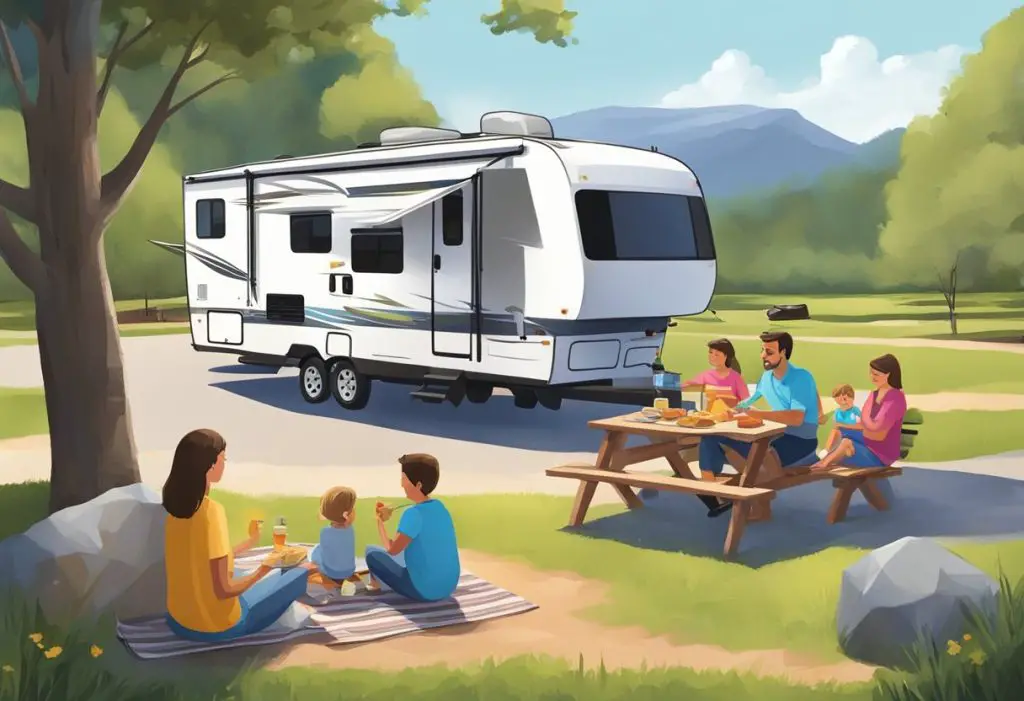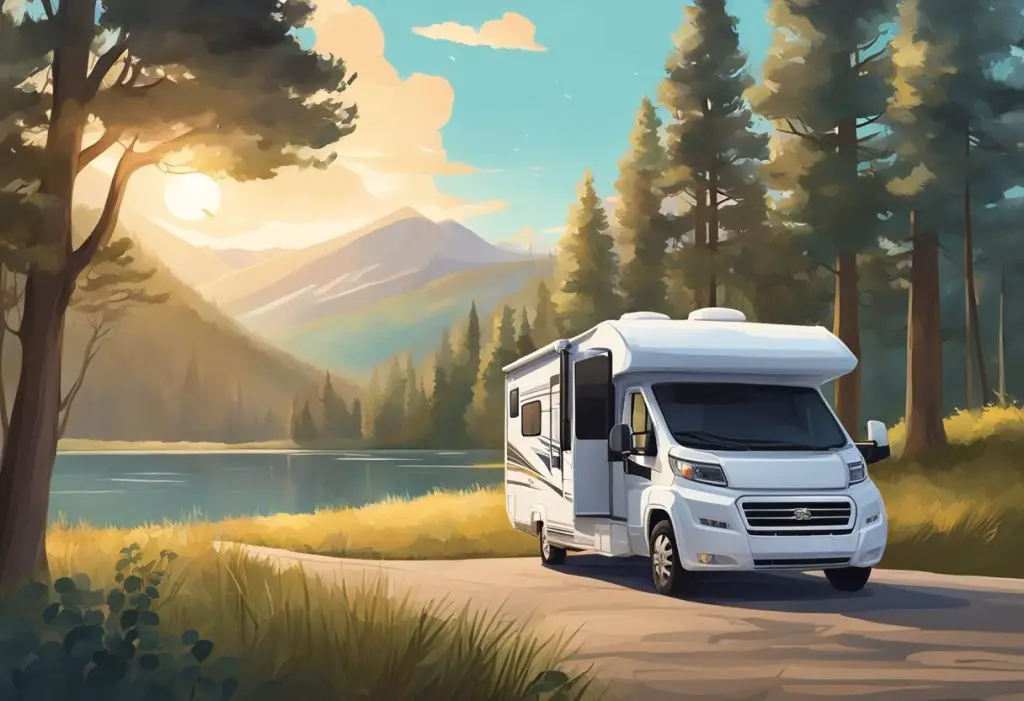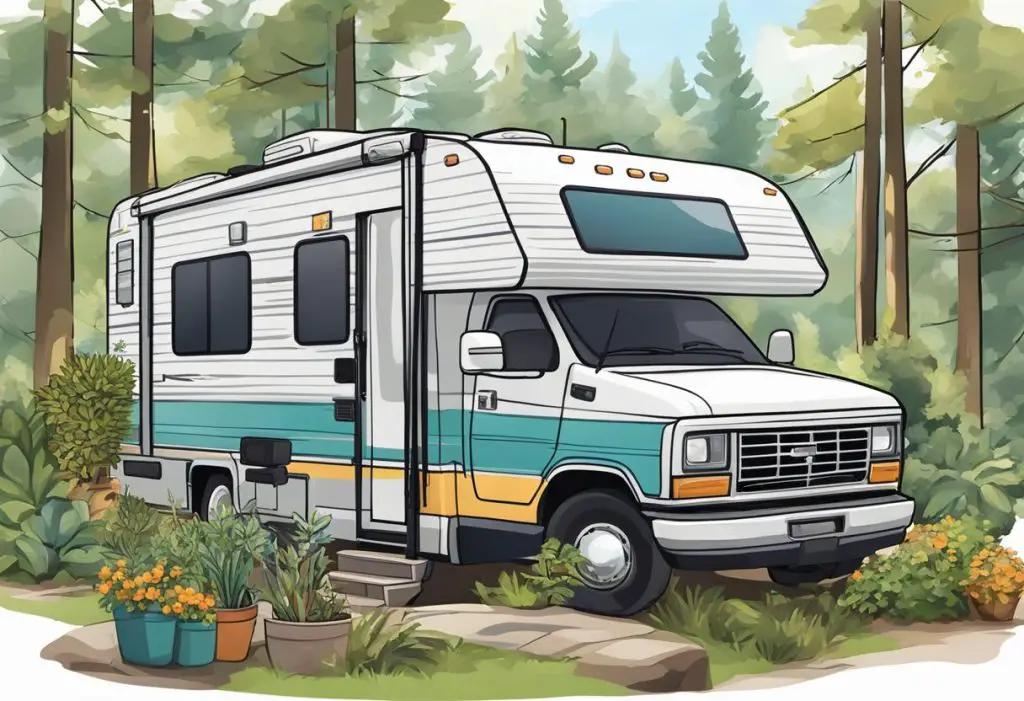Traveling in an RV can be an exciting and rewarding adventure, but it also comes with its own set of challenges, particularly travel fatigue. Many RVers experience this fatigue, stemming from the numerous decisions and physical demands encountered on the road.
Understanding how to effectively manage travel fatigue can significantly enhance the overall RV experience. This article will explore practical and achievable strategies that RVers can use to keep their journeys enjoyable and stress-free. Whether you’re new to RVing or a seasoned traveler, these tips will help make life on the road more comfortable and fulfilling.
1) Stay Hydrated
Would you like to save this article?
Water is an essential companion on any road trip, especially in an RV. It’s easy to become engrossed in the journey and forget to drink enough water. Keeping a reusable water bottle within arm’s reach encourages regular sips throughout the day.
Proper hydration helps maintain energy levels and cognitive function. It can also prevent headaches and fatigue associated with dehydration. Avoid caffeine and alcohol as much as possible, as they can contribute to dehydration.
Smart snacking can also support hydration. Fresh fruits and vegetables contain high water content and can be a refreshing treat. Foods like cucumbers, watermelon, and oranges are excellent choices.
Regular hydration makes a big difference, especially on long drives. Take small, frequent sips rather than chugging large amounts at once. This can help maintain consistent hydration levels, keeping everyone on board feeling alert and ready for the adventure ahead.
2) Avoid Heavy Meals
Eating heavy meals can make travelers feel sluggish and tired. Opting for lighter, balanced meals helps maintain energy levels throughout the day.
Preparing meals like salads, wraps, or stir-fries can be a good option. These dishes are not only easier to prepare but are also lighter on the stomach.
Small, nutritious snacks such as fruits, nuts, and yogurt can keep energy levels steady without causing fatigue.
3) Take Frequent Breaks
Taking frequent breaks can significantly reduce travel fatigue in an RV. A long drive can cause tension and stress, which can easily be mitigated by stopping regularly.
Switch off driving duties with your travel partner. This way, everyone gets a chance to rest and recover.
Short, frequent breaks are great for stretching, getting some fresh air, or enjoying a quick snack. Efficiently managing downtime helps in keeping both driver and passengers refreshed.
4) Use Neck Support Pillows
Using neck support pillows can make a significant difference during long RV journeys. These pillows provide stability and reduce neck strain, which is crucial for staying comfortable on the road.
Many options are available, such as U-shaped pillows or those filled with microfibre beads. These designs offer different levels of cushioning and support.
A good neck pillow can prevent tension build-up, reducing the chances of pain. It’s especially useful if you plan to take naps while someone else is driving.
Some travel pillows come with hooks or straps, making them easy to attach to a backpack or store in a compact space. They can be a simple yet highly effective solution for travel fatigue in an RV.
5) Stretch Regularly
Stretching is crucial to keeping your body limber during long RV travel days.
Simple stretches like arm rotations and torso twists can help rejuvenate sore muscles.
Even a quick 10-minute session can make a big difference.
Calf stretches and ankle rotations are perfect for getting blood flowing again.
A brisk walk can also be a good way to stretch and stay alert.
6) Maintain a Regular Sleep Schedule
Keeping a regular sleep schedule is essential for reducing travel fatigue in an RV. You should aim to go to bed and wake up at the same time every day. This consistent routine helps regulate the body’s internal clock.
You can also create a calming pre-sleep routine. Activities like reading a book or taking a warm shower can signal to the body that it’s time to wind down.
Blocking out disruptions is key. Using blackout curtains and earplugs can minimize noise and light, making it easier to stick to a sleep schedule.
7) Listen to Relaxing Music
Listening to relaxing music can be a simple yet effective way to combat travel fatigue in an RV. Music helps to create a calm atmosphere, making long drives more pleasant.
Soft tunes can reduce stress and promote a sense of well-being. It’s a great way to unwind after a day on the road.
Using pre-made playlists or radio stations can offer variety. Experimenting with different genres to see what works best for everyone’s taste is also helpful.
It’s easy to integrate music into daily routines. While preparing meals or lounging in the evening, some soothing background music can enhance the experience.
Portable speakers or good-quality headphones make it easy to enjoy music, even in the smallest spaces of an RV.
8) Drink Herbal Teas
Sipping on herbal teas can be a soothing way to combat travel fatigue. Chamomile tea is well-known for its calming effects and can help with sleep and reducing anxiety. This makes it an ideal choice for those feeling stressed from the journey.
Another great option is lemon balm tea, which also has properties that can reduce anxiety and promote relaxation. Passionflower tea is another to consider; known for its ability to improve sleep and ease tension.
Incorporating these herbal teas into your routine while traveling in an RV can make a noticeable difference in how you feel. Simple and effective, they act as a natural remedy to help you unwind and recharge.
9) Practice Deep Breathing Exercises
Practicing deep breathing exercises can be a simple yet effective way to alleviate travel fatigue. This method involves taking deep breaths to help calm the mind and relax the body.
You can start by sitting upright or lying down in a comfortable position. Placing one hand on the chest and the other on the belly can help monitor breaths.
Inhaling slowly through the nose for a count of four and feeling the belly rise with each breath. You should then hold your breath for another count of four and gradually exhale through the mouth.
Repeating this cycle for a few minutes can help increase oxygen flow, reduce stress, and boost energy levels. Adding soothing music or visualizing a serene scene can enhance the relaxation effect.
10) Keep the RV Well-Ventilated
Maintaining proper ventilation in the RV is crucial for a comfortable trip. Fresh air circulation helps reduce fatigue by keeping oxygen levels high inside the vehicle.
RVers can open windows and vents to allow air to flow through the cabin. This prevents stuffiness and keeps the air feeling fresh.
Using exhaust fans can help remove stale air and reduce moisture buildup. Consistent air movement can make long drives more pleasant and less tiring.













